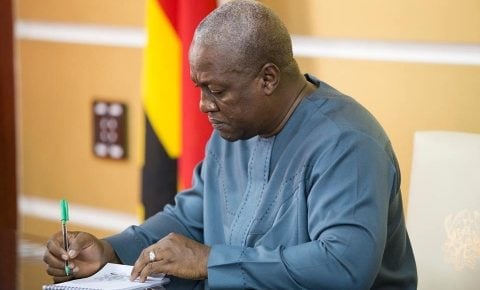President John Dramani Mahama’s recent decisive actions signify a substantial shift in Ghana’s education policy, aimed at addressing long-standing issues of stagnation and discontent within the teaching profession. The President’s approval of promotions for Deputy Directors of Education, some of whom have languished in their positions for up to 15 years, represents a significant step towards revitalizing the leadership structure within the Ghana Education Service (GES). This move acknowledges the dedication and experience of these educators, demonstrating a commitment to recognizing and rewarding their service. Coupled with the pledge to release overdue teacher allowances, including the crucial 20% out-of-station and deprived-area payments, President Mahama’s actions signal a renewed focus on improving the welfare and working conditions of teachers across the country. These combined initiatives aim to boost morale, incentivize service in underserved areas, and foster a more equitable and motivated educational workforce.
The President’s intervention in the promotion bottleneck, which was primarily attributed to a lack of office space at higher levels within the GES, highlights his commitment to overcoming bureaucratic obstacles to ensure fair treatment for educators. By overriding this impediment, President Mahama sends a clear message that the professional development of teachers is a priority and that their contributions are valued. This decisive action is expected to inject renewed energy into the leadership ranks of the GES, facilitating more effective management and oversight of educational institutions nationwide. Moreover, his directive to prioritize teacher accommodation alongside the development of new school infrastructure demonstrates a holistic approach to educational development, recognizing that providing adequate housing for teachers is crucial for attracting and retaining qualified educators, particularly in remote and underserved communities.
The commitment to releasing outstanding teacher allowances, including the 20% incentive for those serving in challenging locations, directly addresses a major source of discontent among educators. This financial recognition acknowledges the sacrifices made by teachers who choose to serve in remote or deprived areas, often facing difficult living conditions and limited access to resources. By fulfilling this long-standing obligation, the government aims to improve the financial well-being of these dedicated professionals, fostering a sense of fairness and appreciation for their contributions. This move is expected to not only boost morale but also incentivize teachers to accept postings in these underserved areas, ultimately contributing to a more equitable distribution of educational resources across the country.
The meeting held at Jubilee House between President Mahama, key government officials, and representatives of the Ghana National Association of Teachers (GNAT) underscores the importance of collaboration and dialogue in addressing the challenges facing the education sector. The presence of Education Minister Haruna Iddrisu, GNAT General Secretary Thomas Tanko Musa, and respected economist Kwame Pianim signals a concerted effort to engage all stakeholders in finding sustainable solutions. The open communication and collaborative approach demonstrated during this meeting foster a sense of trust and shared responsibility, creating a positive environment for addressing complex issues and implementing effective reforms. GNAT’s expression of confidence in President Mahama’s leadership reinforces the positive impact of these initiatives on the morale and outlook of the teaching profession.
The assurance from the Education Minister that teacher concerns are being addressed through ongoing dialogue and collaboration further emphasizes the government’s commitment to engaging with educators and resolving outstanding issues. This proactive approach to communication and problem-solving aims to prevent future disruptions and maintain a stable and productive learning environment. By addressing concerns through dialogue and negotiation, the government demonstrates its respect for the teaching profession and its commitment to fostering a positive and collaborative relationship with educators. This focus on open communication and mutual respect is essential for building trust and ensuring the successful implementation of education reforms.
President Mahama’s comprehensive approach to addressing the challenges facing the education sector, encompassing both promotions and the release of long-overdue allowances, signifies a significant investment in the future of Ghana’s education system. By prioritizing the welfare and professional development of teachers, the government aims to create a more motivated, equitable, and effective teaching force. This, in turn, is expected to have a positive ripple effect throughout the education system, ultimately leading to improved learning outcomes for students across the country. The emphasis on fairness, equity, and professional dignity signals a paradigm shift in the government’s approach to education, recognizing that investing in teachers is an investment in the future of the nation. This renewed focus on teacher welfare and professional growth is anticipated to revitalize the education sector, fostering a culture of excellence and driving positive change within Ghanaian society.


